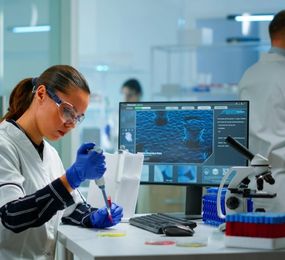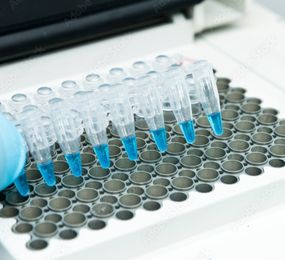The shift towards a more sustainable future has propelled biomanufacturing to the forefront. A key component of this sustainable approach lies in the utilization of renewable feedstocks, derived from biomass and agricultural waste. By harnessing the power of nature, biomanufacturing can create a wide range of products while minimizing environmental impact.
A Wealth of Resources:
Biomass, organic matter derived from living organisms, encompasses a diverse array of feedstocks:
- Agricultural Residues: Crop residues like cornstalks, wheat straw, and rice husks are abundant and often underutilized.
- Forestry Waste: Wood chips, sawdust, and bark can be converted into valuable bioproducts.
- Energy Crops: Crops specifically grown for energy production, such as switchgrass and miscanthus, provide a sustainable source of biomass.
- Municipal Solid Waste: Organic components of municipal waste can be processed and converted into biofuels or biomaterials.
From Waste to Value:
Biomanufacturing processes can transform these renewable feedstocks into various products:
- Biofuels: Biomass can be converted into bioethanol, biodiesel, and biogas, reducing reliance on fossil fuels.
- Biomaterials: Biodegradable plastics, biocomposites, and other materials can be produced from biomass, offering sustainable alternatives to traditional materials.
- Biochemicals: A wide range of chemicals, including organic acids, solvents, and pharmaceuticals, can be derived from biomass.
Benefits of Renewable Feedstocks:
- Sustainability: Utilizing renewable feedstocks reduces reliance on fossil fuels and contributes to greenhouse gas emissions reduction.
- Economic Benefits: Biomanufacturing can create jobs and stimulate local economies, particularly in rural areas.
- Resource Efficiency: By utilizing waste products, biomanufacturing promotes a more circular economy and reduces resource consumption.
Challenges and Opportunities:
Despite the benefits, challenges remain:
- Pre-treatment: Biomass often requires pre-treatment to improve its suitability for bioconversion processes.
- Cost-Competitiveness: Ensuring the cost-effectiveness of bio-based products compared to traditional alternatives is essential for market penetration.
- Infrastructure Development: Investing in infrastructure for biomass collection, processing, and transportation is crucial for large-scale biomanufacturing.
As research and development in biomanufacturing continue to advance, renewable feedstocks will play an increasingly important role in creating a sustainable future. By harnessing the power of nature, biomanufacturing can contribute to a cleaner, greener, and more resource-efficient world.
To register or learn more about the Forum please check here: https://bit.ly/3WRMLFS.
For more information and group participation, contact us: [email protected]
















